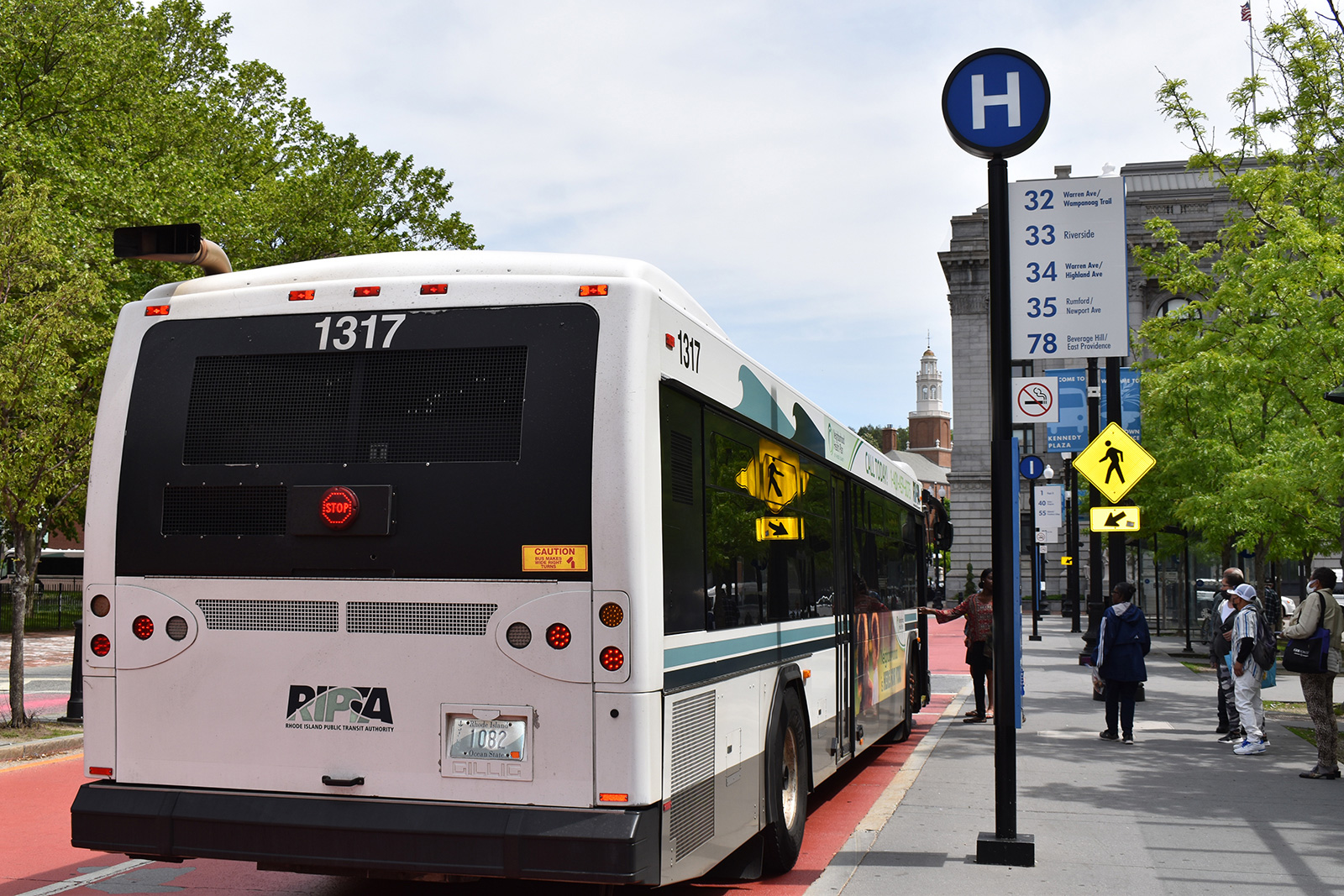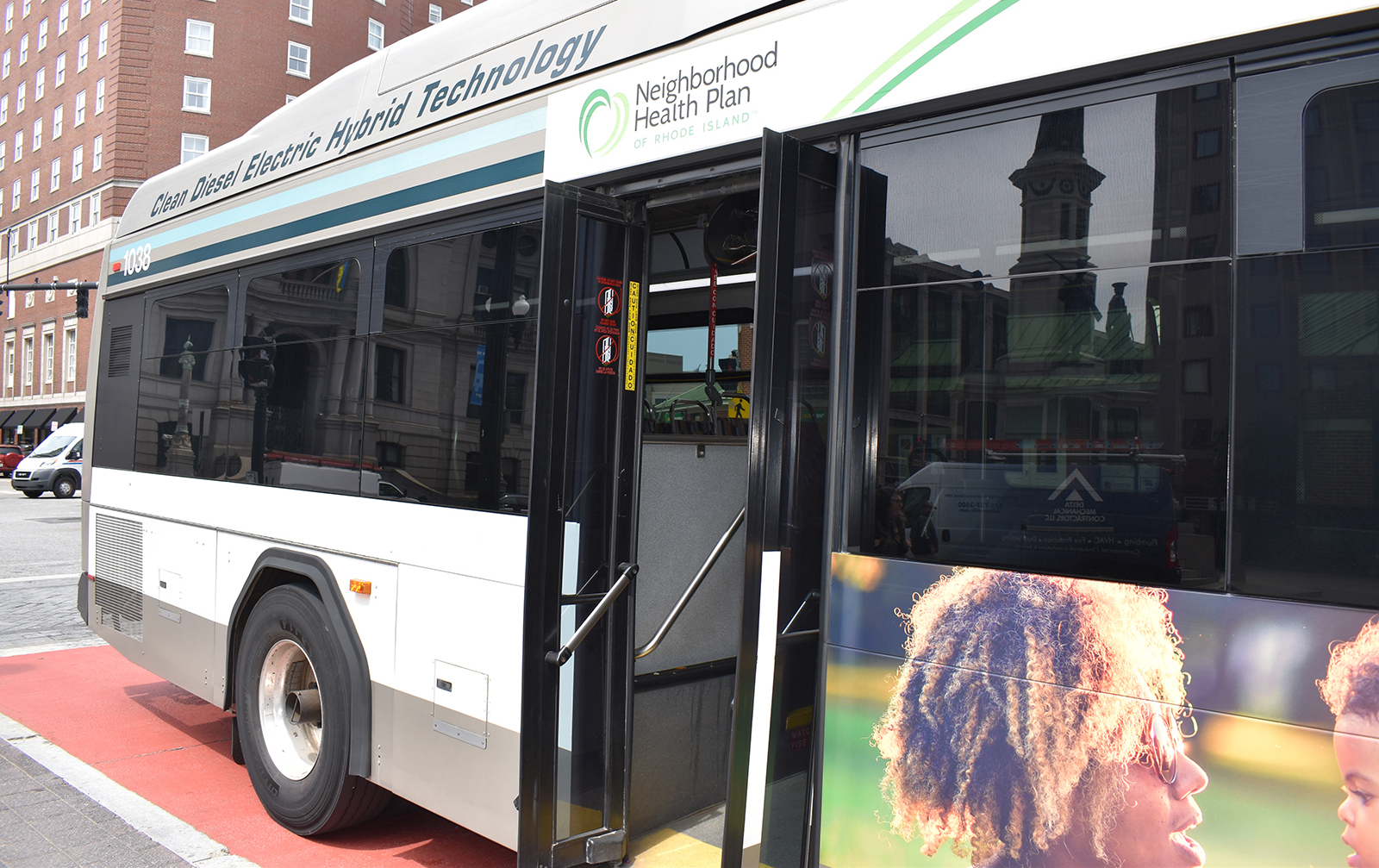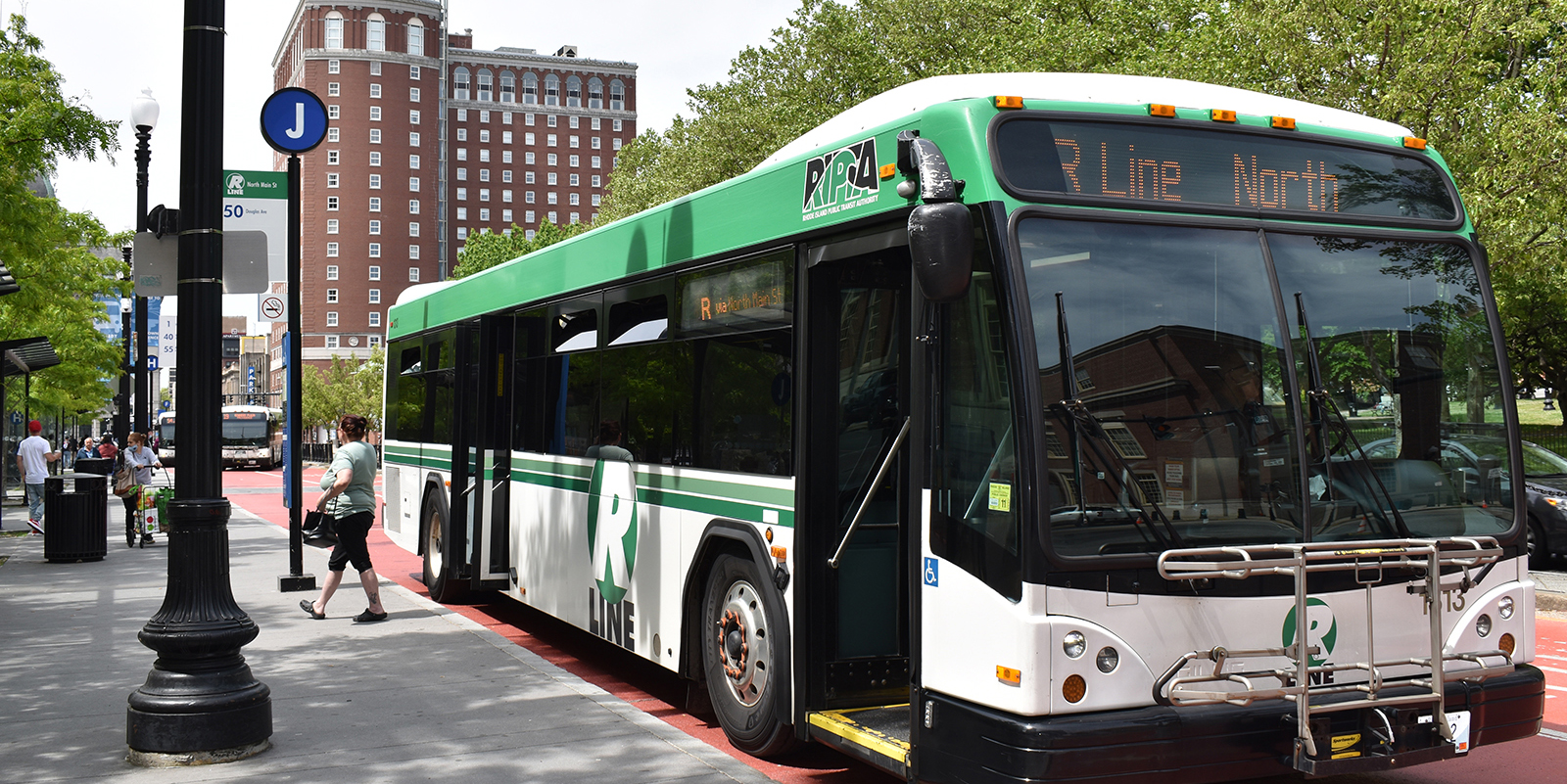RIPTA’s Financial Woes Take Center Stage at Recent Hearing
April 15, 2024
PROVIDENCE — At a quiet Senate Finance Committee hearing last Tuesday night, the Rhode Island Public Transit Authority’s fiscal woes took the main stage.
Legislators discussed RIPTA’s budget, which currently includes an $8 million deficit, and discussed two pieces of legislation that would help fund the agency. Both bills were held for further study.
RIPTA staff and state Office of Management and Budget director Brian Daniels answered questions about the authority’s financial situation and an efficiency study the governor’s office has tasked RIPTA with completing by Jan. 1.
Sen. Jonathan Acosta, a Democrat representing Central Falls and Pawtucket, followed the financial walk-through by presenting bills to the committee that would increase RIPTA funding.
The first of the bills, S2169, would allocate some of the current tax revenues from rideshares (Uber and Lyft) to RIPTA and also impose a 75-cent surcharge to fund the Transit Master Plan (TMP).
Currently, taxes on rideshares transfer to the state’s general fund.
“We did not make the revenue generated from [rideshares] go directly to the industry that it was leading into an existential crisis,” Acosta said. “This bill course corrects that problem.”
The second bill, S2547, if passed, would put a $100,000,000 bond question on the ballot in November.
“It essentially infuses a shock of capital in RIPTA,” Acosta said. The language of the bill says the bond money would go toward the Transit Forward RI 2040, also known as the TMP.
Sen. Frank Ciccone, a Democrat representing Providence and Johnston, asked whether the language around the TMP would be too vague to voters. The plan would improve and increase RIPTA service in the hopes of getting more people to take public transit and thereby help reduce carbon emissions.
Acosta said he would pass that concern on to the bill’s sponsors.
The members of the public who spoke on the bills and RIPTA’s budget said they favored any way to help fund bus service to avoid cuts and improve access.
“We got here, into this conundrum, because of years of underfunding of public transit in the state,” said Nicole O’Laughlin, Save RIPTA campaign manager. “But we can, we can invest.”
O’Laughlin spoke about how leaving RIPTA with a deficit would lead to further service cuts, on top of those proposed to respond to driver shortages.
Grown Smart Rhode Island deputy director John Flaherty said his organization, which promotes green development and advocates against urban sprawl, supports both bills.
Although Flaherty said the state has a way to go to make the system better and more convenient for riders, RIPTA has strengths that it can build on.
“We got the bones to support a first-grade transit system. And yes, it’s expensive,” he said. “I’m not going to back away from that.”
Categories
Join the Discussion
View CommentsRecent Comments
Leave a Reply
Your support keeps our reporters on the environmental beat.
Reader support is at the core of our nonprofit news model. Together, we can keep the environment in the headlines.
We use cookies to improve your experience and deliver personalized content. View Cookie Settings




note the bond in question is actually for $100 illion, for capital expenditures for the TMP such as more buses that would be needed to expand service, more shelters and amenities at bus stops, signal priority equipment to help speed up bus trips, and, help electrify the MBTA commuter rail which would make that service quicker, quieter, more reliable as well as cleaner. If $100 million sounds high, note the 1/4 mile widening of I-95 north is about $250 million, repairing overpasses on Route 146 and one new one is about $190 million, and the state is allocating about $237 million every year to eliminate local property taxes on cars – everything the state does seems expensive
These two bills would be a step in the right direction. Currently the public Transit system is woefully inadequate for tourism. Our public transit currently looks like what some third world country would Although most third world countries have better mass transit systems than we do.